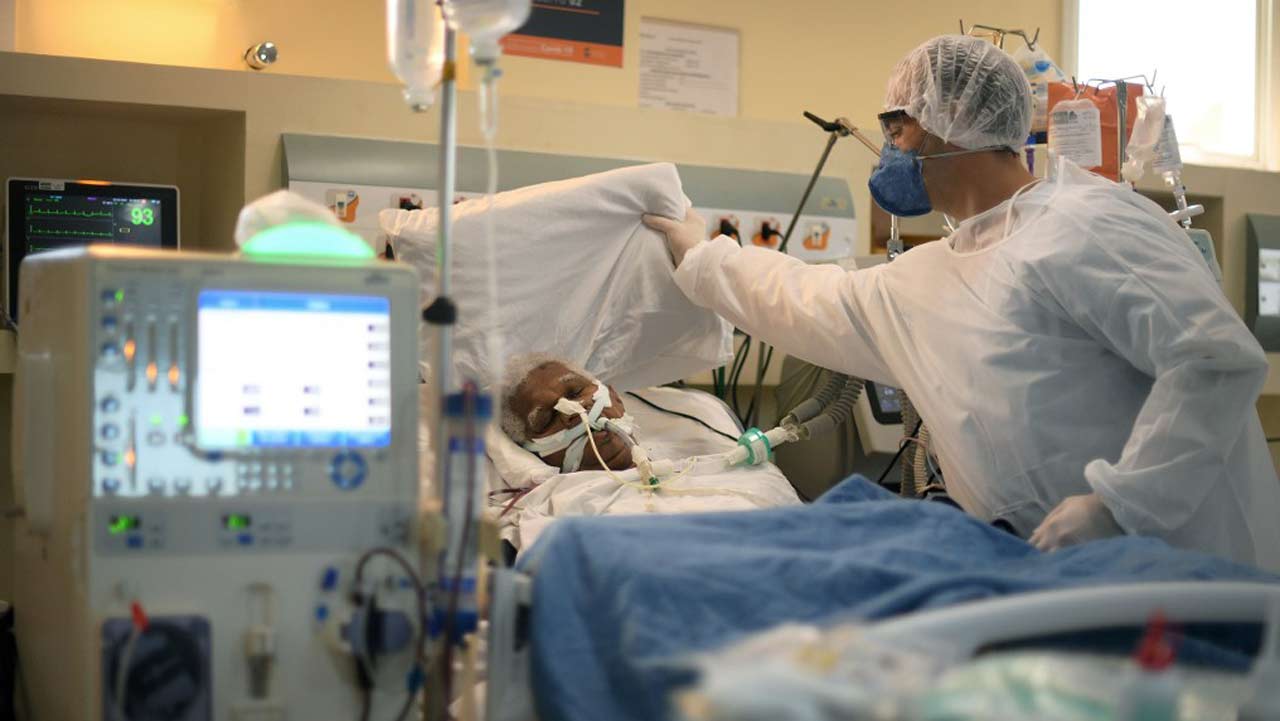During week 9 of your pregnancy, your baby, who only last week was in the embryonic stage, has now progressed to the fetal stage.1,2
Week 9 continues to bring rapid growth with huge developmental strides. Because your baby's muscles are continuing to get stronger, he or she will be making a lot of waves in your amniotic fluid, with spontaneous movements of his or her limbs.1
Still not feeling much? No worries because this week you might be able to hear your baby's heartbeat for the very first time with the use of a handheld Doppler. However, do not be too concerned if you cannot hear it yet, positional changes of the baby may make hearing the heartbeat more of a challenge.1
This MNT Knowledge Center feature is part of a series of articles on pregnancy. It provides a summary of each stage of pregnancy, what to expect, and insights into how your baby is developing.
You will also see introductions at the end of some sections to any recent developments that have been covered by MNT's news stories. Also look out for links to information about related conditions.
Symptoms at 9 weeks pregnant
At this stage of your pregnancy, you still may not feel very pregnant because there are little if any visible physical body changes.
You may, however, begin or continue to experience physical pregnancy symptoms such as:1,3
pregnant woman with bloating
During pregnancy, higher levels of progesterone relaxes smooth muscle tissue throughout your body, including your gastrointestinal tract, which slows down your digestion, leading to gas, bloating, burping, and flatulence
• Weight gain
• Heartburn
• Indigestion
• Nausea and vomiting
• Nausea, bloating, gas, constipation
• Food aversions
• Excess saliva
• Fatigue
• Frequent urination
• Breast changes/tenderness.
(Note: pregnancy increases the risk of urinary tract infections from weeks 6-24, so if your symptoms are not simply from the pregnancy and you suspect an infection, speak with your health care provider about treatment.)5
Your hormones at 9 weeks pregnant
Throughout your pregnancy, you will experience variations in certain hormones, which contribute to many of the pregnancy symptoms you may experience.
Following implantation of the fertilized egg, your body begins to secrete the hormone, human chorionic gonadotrophin (hCG) which is the hormone used to detect pregnancy. HCG is responsible for regulating estrogen and progesterone and contributes to frequent urination.6
Progesterone, which is initially produced by the corpus luteum, rises throughout your pregnancy and continues to do so until the birth of your baby.
In early pregnancy, progesterone is responsible for increasing uterine blood flow, establishing the placenta and stimulating the growth and nutrient production of the endometrium (lining of the uterus). Additionally, progesterone plays a vital role in fetal development, preventing premature labor and lactation, as well as strengthening the pelvic wall muscles to prepare your body for labor.6
In addition to progesterone, the placenta is vital in secreting vital hormones during your pregnancy such as:6
Human placental lactogen: this hormone is believed to handle mammary gland growth, which will be important for lactation following the birth of your baby. Additionally, it plays a role in increasing nutrient levels in your blood, which is vital to the growth and development of your baby
Corticotrophin-releasing hormone: this hormone is not only responsible for determining how long you will be pregnant, but it is also responsible for your baby's growth and development. Later in pregnancy, the rise in both corticotrophin-releasing hormone and cortisol not only complete fetal organ development but also provide the mother with a surge of cortisol which has been linked with maternal attentiveness, increasing the mother-baby bond.
Another vital hormone in pregnancy is estrogen, which is responsible for fetal organ development, placental growth and function and mammary gland growth, which will be important for lactation following the birth of your baby.
Additionally, estrogen is needed for regulation of other hormones produced during pregnancy.
Because of the rise in progesterone and estrogen, you may experience some not so pleasant pregnancy symptoms such as mood swings and morning sickness.
Another hormone, relaxin, can cause physical symptoms such as pelvic pain, balance difficulties and constipation, because of its role of relaxing maternal muscles, ligaments and joints.

Baby's development at 9 weeks pregnant At 9 weeks pregnant there are many changes in your baby's development. Developments that are underway include:1-4 9 week fetus
By the time you are 9 weeks pregnant, you baby has taste buds and their external ears are fully developed.
Head/neck: the head is more straightened and rounded
Eyes: while the eyes remain closed, there is full retinal pigmentation present
Mouth: the surface of the tongue will now have taste buds and the palate bones start the process of fusion
Ears: with the external ears fully developed, they appear much more pronounced
Limbs: all limbs are formed with the fingers and toes having a distinct appearance. The arms are also now bent at the elbow
Abdomen/pelvis: the liver, spleen and gallbladder form and the intestines continue to make their way into the body from the umbilical cord, and the external genitalia remain unrecognizable.
Things to do in week 9 of pregnancy
Your task list is growing and if you have not done so make sure that you put scheduling your prenatal visit on the top of your list. If you are considering certain genetic testing, speak with your health care provider; testing is generally done between weeks 9 and 12.1
You may continue to be feeling the effects of your new pregnancy.
In addition to running to the bathroom from your nausea, now you may notice that you need to empty your bladder more frequently as well.1 While frequent urination is a normal part of pregnancy, it is also important to make sure you do not have a urinary tract infection, so alert your health care provider for testing.5
Finding putting on a bra more challenging? Feeling more sensitive? Your growing breasts may be causing you some increased discomfort, which can be worse at night. While you may still be able to sleep on your stomach, your tender breasts may hinder that. This may actually be a great time to try sleeping on your left side, which is a great way for your baby to get better blood flow.1
Lifestyle changes at 9 weeks pregnant
As with earlier weeks, you find out that there are many lifestyle modifications that need to be made during pregnancy and even after delivery.
General health
During pregnancy, you will need to take care of yourself and your developing baby. Be sure not to drink alcohol or smoke during pregnancy, and avoid all other toxic substances such as drugs during this time. Be sure to discuss all medications you are taking with your health care provider to ensure that you should continue use during your pregnancy. To nourish yourself and your baby, make sure you eat a healthy diet and take a good prenatal vitamin.7
Another way to maintain your health during pregnancy is to get 30 minutes per day of exercise such as yoga, walking or swimming.8 Speak with your health care provider about your current or desired exercise regimen to make sure it is safe.
Beauty
Everyone wants to look their best but using permanent hair color is not recommended during the first 12 weeks of pregnancy; instead consider using a semi-permanent dye.9
Food
While it is safe to eat fish during pregnancy, it is recommended that you limit your intake to 8-12 oz. of fish and shellfish per week.6,8
Some examples of fish which are safe to consume during pregnancy include shrimp, canned light tuna (note: mercury varies can to can), pollock, catfish, salmon, anchovies, herring, sardines, trout, Atlantic and Pacific mackerel and cod. If you plan on eating albacore tuna and tuna steak, it is recommended to limit consuming this fish to 6 oz. per week.10
Most importantly is to avoid eating shark, swordfish, tilefish and king mackerel while pregnant, as they have high levels of mercury which can be harmful to your baby's brain and nervous system.
Baby's size at 9 weeks pregnantpeanut shell open with peanuts
At 9 weeks pregnant, your baby is the size of a peanut.
At 9 weeks, your little girl or boy is growing, measuring in at about 3/4 of an inch.4
Your little peanut is just that - the size of a peanut.3
If you have questions regarding your pregnancy, be sure to contact your health care provider.
Call your doctor if you are experiencing symptoms of an ectopic pregnancy or miscarriage such as vaginal bleeding or passage of tissue, leaking vaginal fluid, feeling faint or dizzy, low blood pressure, rectal pressure, shoulder pain and severe pelvic pain or cramping.8
By Lori Smith BSN MSN CRNP
Medical News Today
ABUJA: Training Schedule for Basic Life Support BLS, Pediatric Advanced Life Support (PALS), Advanced Cardiovascular Life Support ACLS, First Aid, CPR, AED
PORTHARCOURT: Training Schedule for Basic Life Support BLS, Pediatric Advanced Life Support (PALS), Advanced Cardiovascular Life Support ACLS, First Aid, CPR, AED
LAGOS: Training Schedule for Basic Life Support BLS, Pediatric Advanced Life Support (PALS), Advanced Cardiovascular Life Support ACLS, First Aid, CPR, AED




